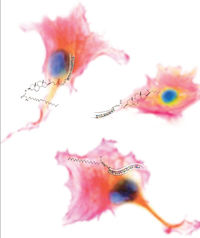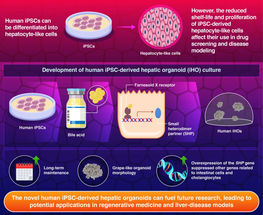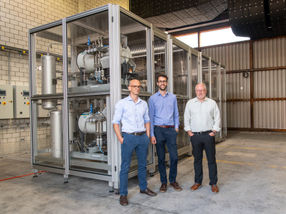European Commission earmarks EUR12 million for plant growth research
Plants are invaluable sources of food, medicine, renewable materials and energy. But we still know relatively little about the biological processes that make them grow. The European Commission is devoting EUR12 million to AGRON-OMICS, a plant research consortium spearheaded by Pierre Hilson and Dirk Inzé of the Flanders Interuniversity Institute for biotechnology (VIB) and Ghent University. The goal of this 5-year initiative led in collaboration with other top European research institutes is to understand the network of biological processes involved in leaf growth.
It would be hard to overestimate the importance of plants in our daily life. They provide us with food, medicine, and renewable sources of materials and energy. It's therefore sobering to realize that, in comparison to cancer for example, we still know very little about the mechanisms involved in plant growth. Although key factors have been identified, researchers do not yet understand how their action is orchestrated, nor how the growth process is coordinated across the successive levels of organization: from molecules, to cells, organs and finally entire organisms. In particular, leaves are exquisite solar-driven molecular machines for carbon assimilation and essential determinants of ecosystem productivity. Given their crucial role for mankind, we must improve our knowledge about the biology of plants.
But, times are changing and novel technologies are now being developed to systematically study complex biological processes. Pierre Hilson, Dirk Inzé and their colleagues in the Department of Plant Systems Biology, in collaboration with nine other top European research institutes, have set out to perform an in-depth study of leaf growth in the model plant species Arabidopsis thaliana. To support their efforts, these scientists launched an initiative called AGRON-OMICS (Arabidopsis GROwth Network integrating OMICS technologies). In the coming five years, this network of major European players in plant biology will perform experiments to identify the molecular components controlling growth and build mathematical models to explain how these components interact.
The significance of the initiative also caught the attention of the European Commission, which is providing EUR12 million toward its success. With the exception of the Arabidopsis genome initiative, this is arguably the largest grant ever awarded in this area of research, and a clear indication of the social importance of a deep understanding of life processes in plants.

Get the life science industry in your inbox
By submitting this form you agree that LUMITOS AG will send you the newsletter(s) selected above by email. Your data will not be passed on to third parties. Your data will be stored and processed in accordance with our data protection regulations. LUMITOS may contact you by email for the purpose of advertising or market and opinion surveys. You can revoke your consent at any time without giving reasons to LUMITOS AG, Ernst-Augustin-Str. 2, 12489 Berlin, Germany or by e-mail at revoke@lumitos.com with effect for the future. In addition, each email contains a link to unsubscribe from the corresponding newsletter.





















































